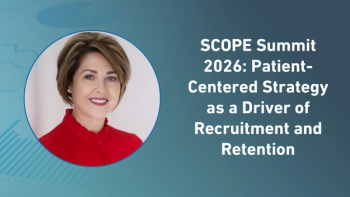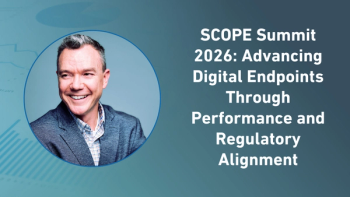
Social Determinants of Health Have High Impact on Informed Consent Comprehension, Study Finds
Parents of children with cancer and limited health literacy were associated with lower comprehension of informed consent.
A recent study conducted through pediatric cancer trials found that limited health literacy and use of the Spanish language for medical communication impacted parents’ comprehension of informed consent.1 The authors of the study, published in JAMA Network Open, pointed to past research in this area, which showed that only 32% of parents had an understanding of the purpose behind their clinical trial, with most of the parents being non-Hispanic White individuals.2 This underscores the need to enhance informed consent comprehension across all populations.
The study enrolled 223 parents of children with a new cancer diagnosis at Rady Children’s Hospital San Diego in California, from October 1, 2014, to March 31, 2021.
“Linear mixed effects models were used to assess whether informed consent comprehension overall and by domain (purpose, procedures, and randomization; risks and benefits; alternatives; and voluntariness) were associated with SDOH and sociocontextual factors,” the authors wrote.1
Of the 223 participants, 49.8% were Hispanic and 37.8% of this group used Spanish language for medical communications. “Use of Spanish language for medical communication was associated with lower overall IC comprehension and lower comprehension of the purpose, procedures, and randomization and voluntariness domains, highlighting the importance of language-concordant IC delivery to ensure IC comprehension,” the authors wrote.1
The authors also add that among Hispanic cultural norms, respect may play a role in informed comprehension, as parents who use the Spanish language may be less willing to ask questions compared to those in the study who used the English language, according to the study. Another consideration is the tendency for clinicians to shorten and/or simplify explanations of the study to individuals who do not use the English language. Delving deeper into the study population, the authors found that unmarried marital status and older parental age were also factors that impacted comprehension.1
There are also the unique challenges of obtaining informed consent, which the authors said is particularly difficult in the realm of pediatric cancer.
“With the devastating news of a childhood cancer diagnosis, the shock experienced by parents can affect IC comprehension. Additionally, the time-sensitive nature of starting cancer treatment creates a high-stakes environment that is not conducive to comprehension,” the authors wrote.1
Despite providing valuable insights, the study acknowledged limitations, including a predominantly English- and Spanish-speaking sample and a focus on hematological malignancies. “We did not survey those who declined to participate in the therapeutic clinical trial to determine reasons for declining. Thus, our findings may not represent those who have baseline hesitancy about research participation. Another limitation is that participants with lower health literacy might have had greater difficulty understanding the questionnaires as well as the IC, which might have contributed to the observed differences by health literacy,” the authors explain.1
In conclusion, the authors suggest further research should be done to determine whether all clinical trial participation is voluntary and that all elements of the informed consent are fully comprehended by the decision-maker. “Our findings support the investigation across pediatric disciplines of the potential role of culturally, linguistically, and health literacy–concordant interventions to improve IC comprehension and decision-making and ensure more equitable research participation in racial and ethnic minority populations,” the authors conclude.1
References
- Aristizabal P, Nataraj S, Ma AK, et al. Social Determinants of Health and Informed Consent Comprehension for Pediatric Cancer Clinical Trials. JAMA Netw Open. 2023;6(12):e2346858. doi:
10.1001/jamanetworkopen.2023.46858 - Cousino MK, Zyzanski SJ, Yamokoski AD, et al. Communicating and understanding the purpose of pediatric phase I cancer trials. J Clin Oncol. 2012;30(35):4367-4372. doi:
10.1200/JCO.2012.42.3004
Newsletter
Stay current in clinical research with Applied Clinical Trials, providing expert insights, regulatory updates, and practical strategies for successful clinical trial design and execution.



